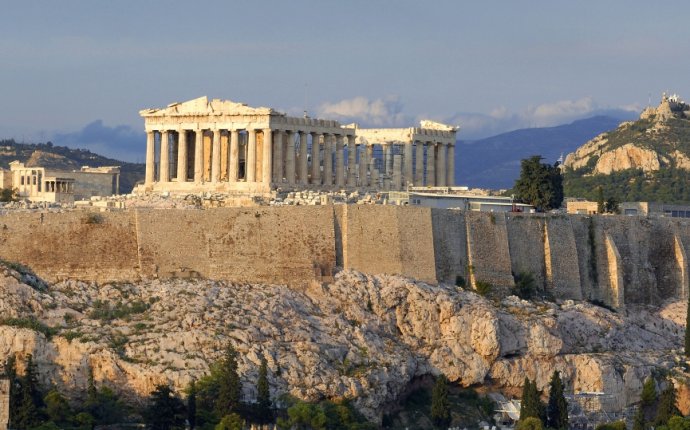
Athens Greece History
Athenian democracy was made up of three important institutions. The first was the ekklesia, or Assembly, the sovereign governing body of Athens. Any member of the demos–any one of those 40, 000 adult male citizens–was welcome to attend the meetings of the ekklesia, which were held 40 times per year in a hillside auditorium west of the Acropolis called the Pnyx. (Only about 5, 000 men attended each session of the Assembly; the rest were serving in the army or navy or working to support their families.) At the meetings, the ekklesia made decisions about war and foreign policy, wrote and revised laws and approved or condemned the conduct of public officials. (Ostracism, in which a citizen could be expelled from the Athenian city-state for 10 years, was among the powers of the ekklesia.) The group made decisions by simple majority vote.
The Boule
The second important institution was the boule, or Council of Five Hundred. The boule was a group of 500 men, 50 from each of ten Athenian tribes, who served on the Council for one year. Unlike the ekklesia, the boule met every day and did most of the hands-on work of governance. It supervised government workers and was in charge of things like navy ships (triremes) and army horses. It dealt with ambassadors and representatives from other city-states. Its main function was to decide what matters would come before the ekklesia. In this way, the 500 members of the boule dictated how the entire democracy would work.
Positions on the boule were chosen by lot and not by election. This was because, in theory, a random lottery was more democratic than an election: pure chance, after all, could not be influenced by things like money or popularity. The lottery system also prevented the establishment of a permanent class of civil servants who might be tempted to use the government to advance or enrich themselves. However, historians argue that selection to the boule was not always just a matter of chance. They note that wealthy and influential people–and their relatives–served on the Council much more frequently than would be likely in a truly random lottery.
The Dikasteria
The third important institution was the popular courts, or dikasteria. Every day, more than 500 jurors were chosen by lot from a pool of male citizens older than 30. Of all the democratic institutions, Aristotle argued that the dikasteria “contributed most to the strength of democracy” because the jury had almost unlimited power. There were no police in Athens, so it was the demos themselves who brought court cases, argued for the prosecution and the defense, and delivered verdicts and sentences by majority rule. (There were also no rules about what kinds of cases could be prosecuted or what could and could not be said at trial, and so Athenian citizens frequently used the dikasteria to punish or embarrass their enemies.)
Jurors were paid a wage for their work, so that the job could be accessible to everyone and not just the wealthy (but, since the wage was less than what the average worker earned in a day, the typical juror was an elderly retiree). Since Athenians did not pay taxes, the money for these payments came from customs duties, contributions from allies and taxes levied on the metoikoi. The one exception to this rule was the leitourgia, or liturgy, which was a kind of tax that wealthy people volunteered to pay to sponsor major civic undertakings such as the maintenance of a navy ship (this liturgy was called the trierarchia) or the production of a play or choral performance at the city’s annual festival.
The End of Athenian Democracy
Around 460 B.C., under the rule of the general Pericles (generals were among the only public officials who were elected, not appointed) Athenian democracy began to evolve into something that we would call an aristocracy: the rule of what Herodotus called “the one man, the best.” Though democratic ideals and processes did not survive in ancient Greece, they have been influencing politicians and governments ever since.